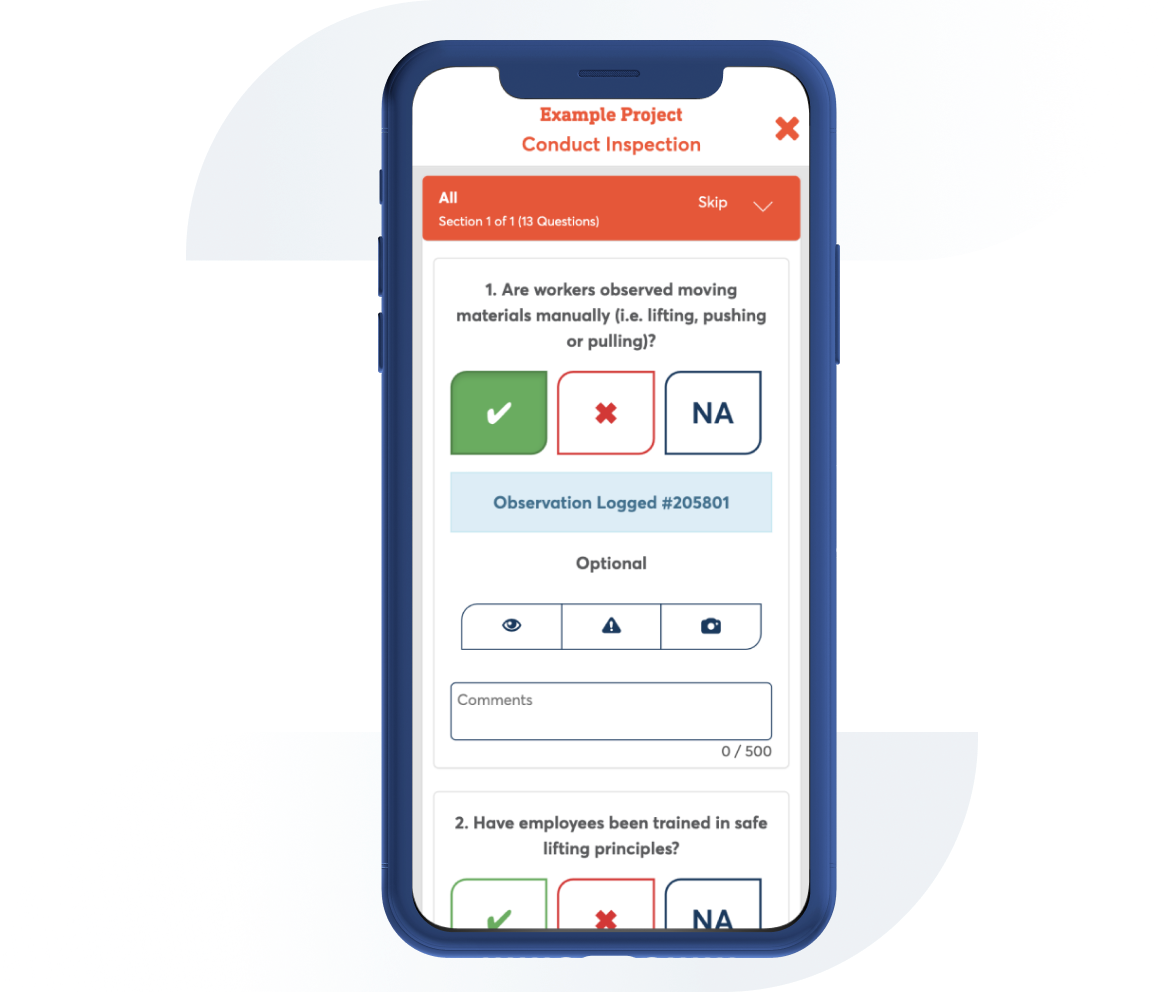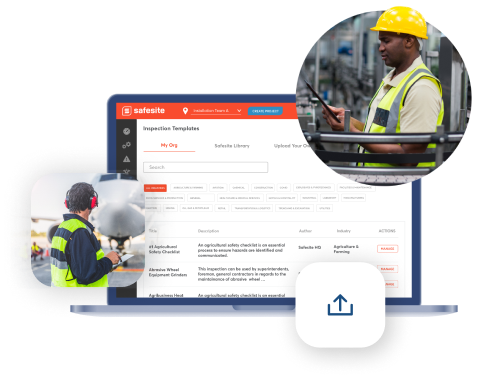Gap Analysis Checklist
Contributor: Safesite Jurisdiction: OSHA
This inspection gives a complete analysis of your organizations using ISO 9001 standards.

Template Preview
1. Context of the Organization: Have all external and internal issues that are relevant to your organization’s purpose and the achievement of customer satisfaction and the organization’s strategic direction been determined?
Actions
2. Context of the Organization: Have the needs and expectations of interested parties that are relevant to the QMS been determined?
Actions
3. Context of the Organization: Was the scope of your QMS determined whilst taking into account all the external and internal issues, the needs of interested parties and the scope your products and services?
Actions
4. Context of the Organization: Is your QMS established, and does it include a description of the processes required and their sequence and interaction?
Actions
5. Context of the Organization: Have the criteria for managing these processes and their interaction been established?
Actions
6. Context of the Organization: Have all responsibilities, methods, measurements and related performance indicators, needed to ensure the effective operation and control, been established?
Actions
7. Leadership: Has top management taken accountability for the effectiveness of the QMS?
Actions
8. Leadership: Have the policy and objectives for the QMS, which are compatible with the strategic direction of the organization, been established and communicated?
Actions
9. Leadership: Have the objectives been established at relevant departmental and individual levels with the business?
Actions
10. Leadership: Have the requirements for the QMS been integrated into the business processes and have management promoted awareness of the process approach?
Actions
11. Leadership: Have customer requirements and applicable statutory and regulatory requirements been determined, met and communicated throughout the organization?
Actions
12. Leadership: Have the risks and opportunities that are relevant to the QMS been established?
Actions
13. Leadership: Has the organization established and communicated the responsibilities and authorities for the effective operation of the QMS?
Actions
14. Planning: Have the risks and opportunities that need to be addressed to give assurance that the QMS can achieve its intended result(s) been established?
Actions
15. Planning: Has the organization planned actions to address these risks and opportunities and integrated them into the system processes?
Actions
16. Planning: Is there a defined process for the determining the need for changes to the QMS and managing their implementation?
Actions
17. Support: Has the organization determined and provided the resources needed for the establishment, implementation, maintenance and continual improvement of the QMS (including people, environmental and infrastructure requirements)?
Actions
18. Support: Is monitoring or measuring is used for evidence of conformity of products and services to specified requirements?
Actions
19. Support: Has the organization determined the knowledge necessary for the operation of its processes and the achievement of conformity of products and services and implemented a lessons learned process?
Actions
20. Support: Has the organization ensured that those persons who can affect the performance of the QMS are competent on the basis of appropriate education, training, or experience or taken action to ensure that those persons can acquire the necessary competence?
Actions
21. Support: Has the documented information required by the standard and necessary for the effective implementation and operation of the QMS been established?
Actions
22. Operation: Is there a de ned process for the provision of products and services that meet the requirements defined by the customer?
Actions
23. Operation: Are there any changes planned?
Actions
24. Operation: Are any outsourced processes managed and controlled?
Actions
25. Operation: Is there a defined process for reviewing and communicating with customers in relation to information relating to products and services, enquiries, contracts or order handling?
Actions
26. Operation: Is this review conducted prior to the organisation’s commitment to supply products and services?
Actions
27. Operation: Do you design and develop products or services?
Actions
28. Operation: Do you ensure that externally provided processes, products, and services conform to specified requirements?
Actions
29. Operation: Do you have criteria for the evaluation, selection, monitoring of performance and re-evaluation of external providers?
Actions
30. Operation: Is the provision of products and services carried out in controlled conditions which include: the availability of documented information that de nes the characteristics of the products and services?
Actions
31. Operation: Is the provision of products and services carried out in controlled conditions which include: the availability of documented information that defines the activities to be performed and the results to be achieved?
Actions
32. Operation: Is the provision of products and services carried out in controlled conditions which include: monitoring and measurement activities at appropriate stages to verify that criteria for control of processes and process outputs, and acceptance criteria for products and services, have been met?
Actions
33. Operation: Is the provision of products and services carried out in controlled conditions which include: the people carrying out the tasks are competent?
Actions
34. Operation: Do you have effective methods of ensuring traceability during the operation process?
Actions
35. Operation: Is property belonging to customers or external providers used in the provision of the product or service?
Actions
36. Operation: Is there a requirement for post-delivery activities associated with the products and services such as warranty, maintenance services, recycling or final disposal?
Actions
37. Operation: Is the provision of products and services carried out in controlled conditions which include: Are any nonconforming process outputs managed so as to prevent their unintended use?
Actions
38. Performance Evaluation: Has the organisation determined what needs to be monitored and measured and the methods for monitoring, measurement, analysis and evaluation, to ensure valid results?
Actions
39. Performance Evaluation: Has it established when the results from monitoring and measurement shall be analyzed and evaluated?
Actions
40. Performance Evaluation: Have methods of monitoring customer perceptions of the provision of products and services been established?
Actions
41. Performance Evaluation: Has it determined the need or opportunities for improvements within the QMS and how these will be fed into management reviews?
Actions
42. Performance Evaluation: Has the organisation established a process for an internal audit of the QMS?
Actions
43. Performance Evaluation: Has an approach to perform management reviews been established and implemented?
Actions
44. Improvement: Has the organisation determined and selected opportunities for improvement and implemented the necessary actions to meet customer requirements and enhance customer satisfaction?
Actions
45. Improvement: Does the organisation operate appropriate processes for managing nonconformities and the related corrective actions?
Actions
46. Improvement: Has the organisation decided on how it will address the requirement to continually improve the suitability, adequacy, and effectiveness of the QMS?
Actions
47. Completion
Actions
48. Recommendations
Actions
49. Write Comments or Remarks here:

Can't find what you are looking for?
